Journal Articles
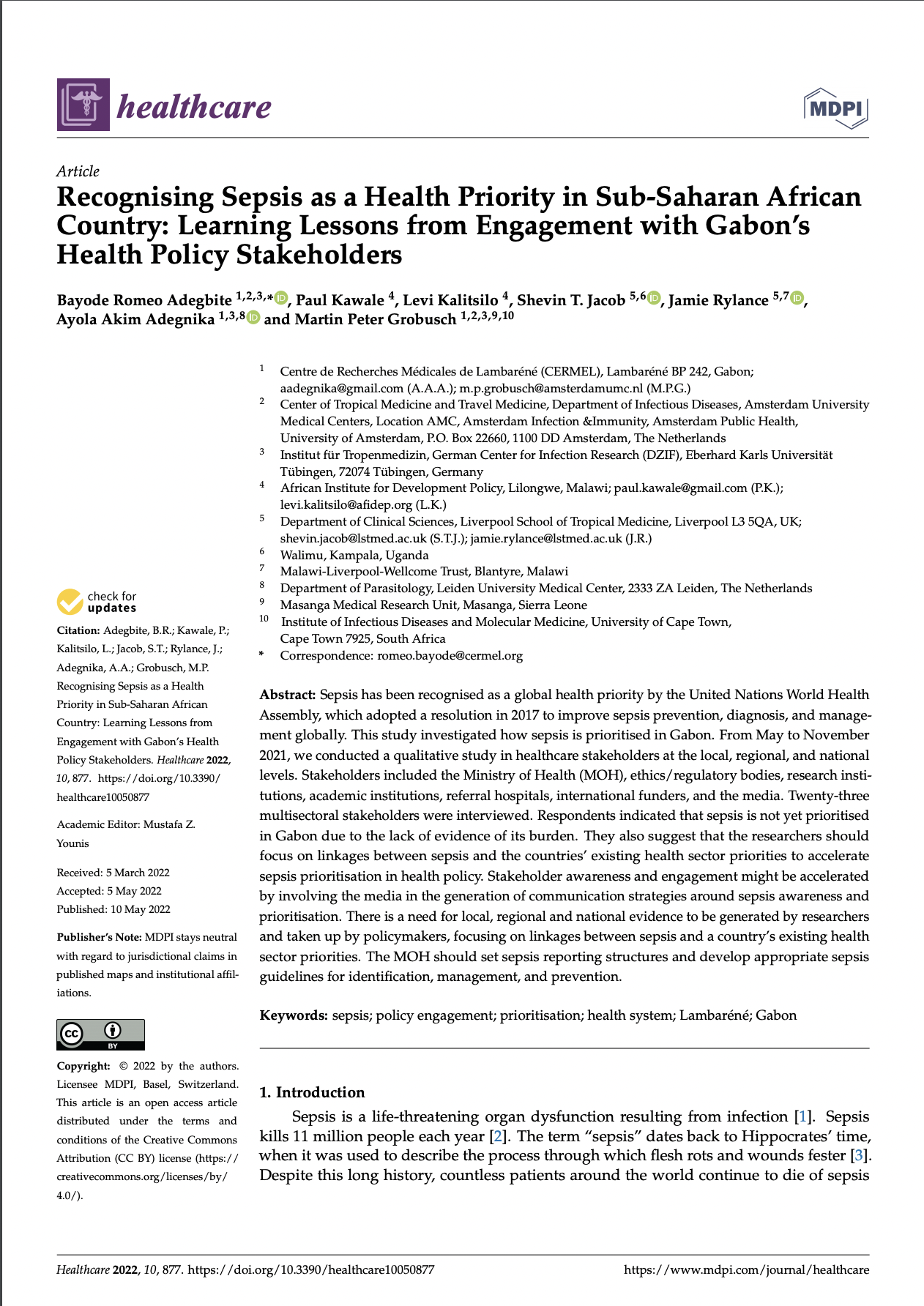
Sepsis has been recognised as a global health priority by the United Nations World Health Assembly, which adopted a resolution in 2017 to improve sepsis prevention, diagnosis, and management globally. This study investigated how sepsis is prioritised in Gabon. From May to November 2021, we conducted a qualitative study in healthcare stakeholders at the local, regional, and national levels. Stakeholders included the Ministry of Health (MOH), ethics/regulatory bodies, research institutions, academic institutions, referral hospitals, international funders, and the media. Twenty-three multisectoral stakeholders were interviewed. Respondents indicated that sepsis is not yet prioritised in Gabon due to the lack of evidence […]
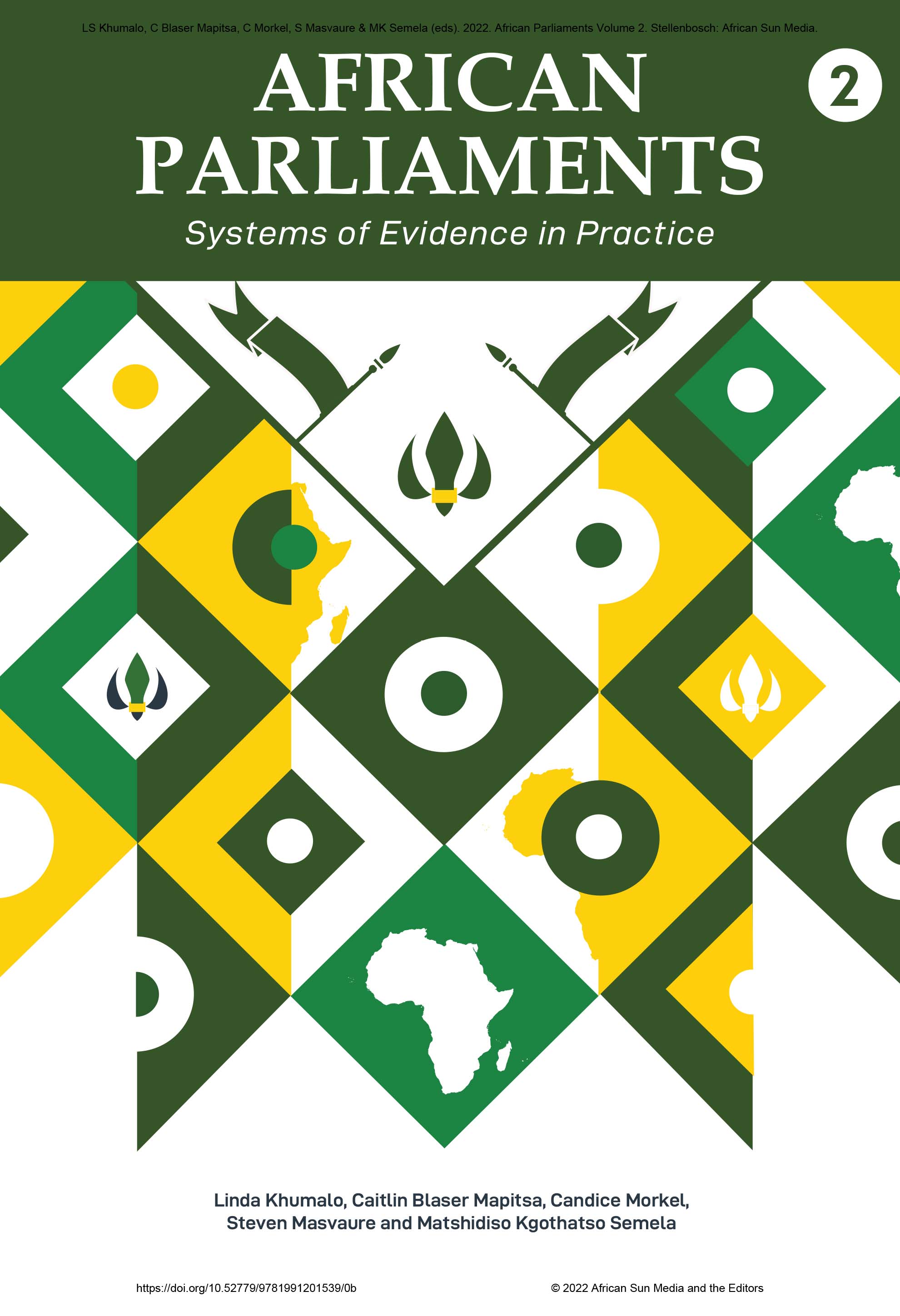
Given the primary functions of parliaments and the central role they play in countries’ development efforts, they are often inadequately staffed and equipped and therefore unable to support sustained use of evidence in parliamentary debate and decision-making. In sub-Saharan African countries, many parliaments must contend with weak institutional systems, structures and capacities – among other factors. Strengthening evidence systems for better and quality debate and decision-making, must therefore remain a priority for both scholars and practitioners. The publication is a collection of reflections from parliamentarians and practitioners. Read reflections from AFIDEP’s Dr. Rose Oronje’s reflections on page xxii. Access the […]
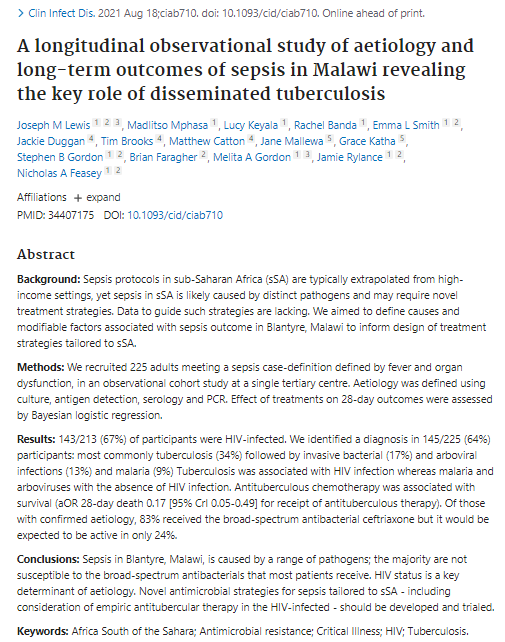
Sepsis protocols in sub-Saharan Africa (sSA) are typically extrapolated from high-income settings, yet sepsis in sSA is likely caused by distinct pathogens and may require novel treatment strategies. Data to guide such strategies are lacking. We aimed to define causes and modifiable factors associated with sepsis outcome in Blantyre, Malawi to inform design of treatment strategies tailored to sSA. You can access the full articles here: A longitudinal observational study of aetiology and long-term outcomes of sepsis in Malawi revealing the key role of disseminated tuberculosis – PubMed (nih.gov) Authors: Joseph M. Lewis, Madalitso Mphasa, Lucy Keyala, Rachel Banda, Emma […]
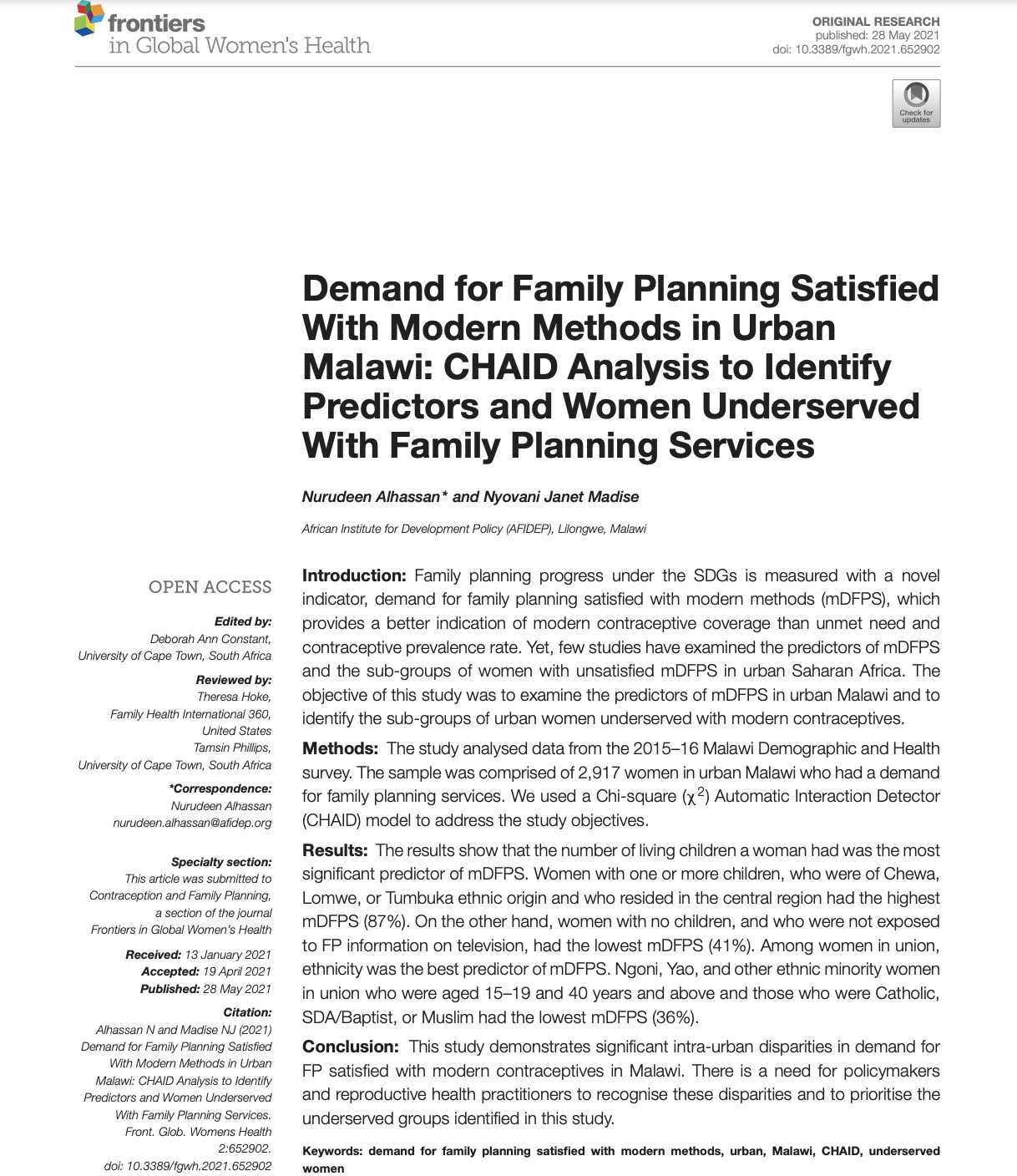
Modern contraceptive use is effective for preventing unplanned pregnancies and helping individual women and couples to decide freely and responsibly if, when, and how many children they want to have; family planning progress under the SDGs is measured with a novel indicator, demand for family planning satisfied with modern methods (mDFPS), which provides a better indication of modern contraceptive coverage than unmet need and contraceptive prevalence rate, this study demonstrates significant intra-urban disparities in demand for FP satisfied with modern contraceptives in Malawi. There is a need for policymakers and reproductive health practitioners to recognise these disparities and to prioritise […]
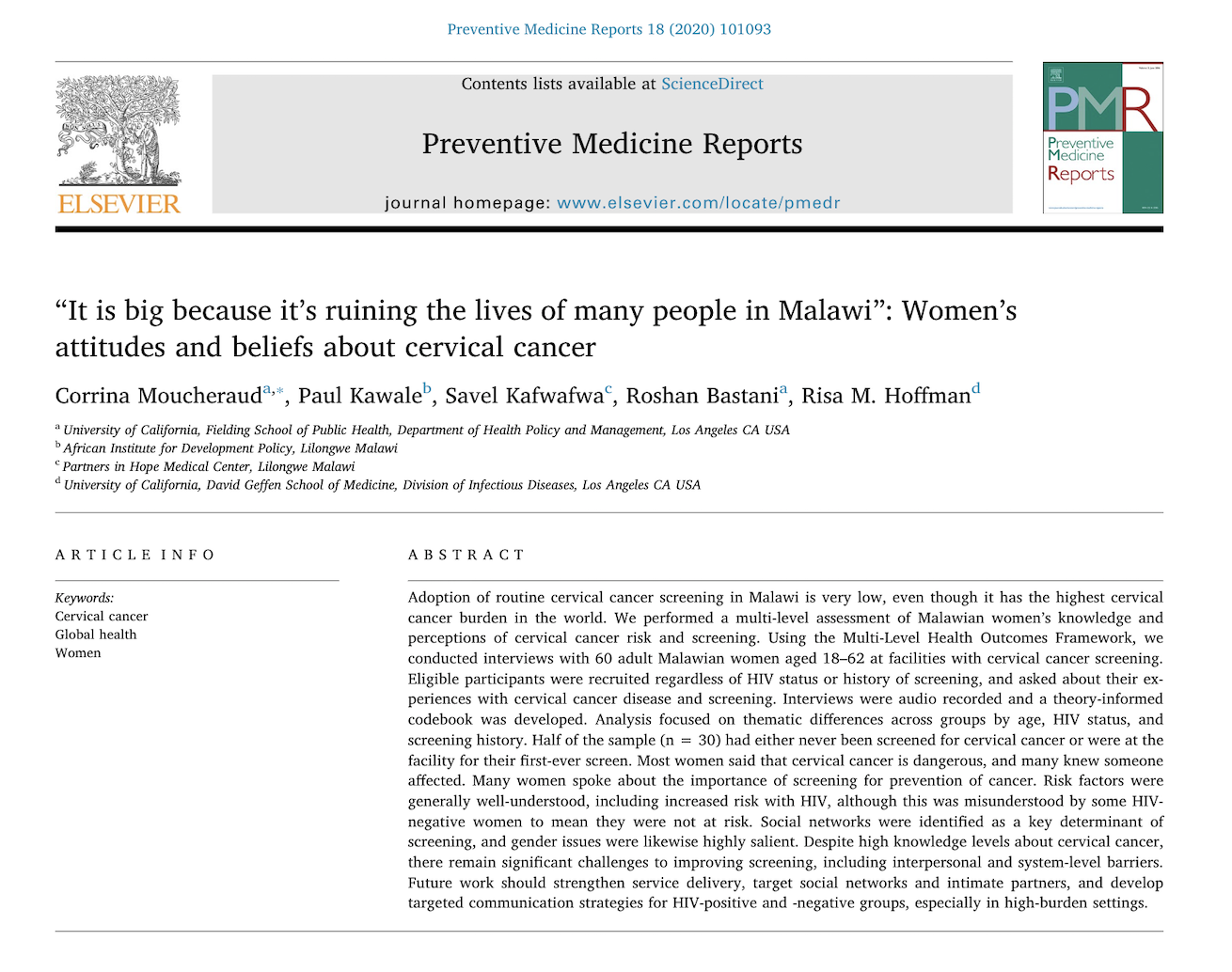
Cervical cancer is a major cause of disease and death in many low-income countries. Prevention strategies have effectively reduced the burden in high-income countries, and this has caused a highly in-equitable global distribution of disease. Adoption of routine cervical cancer screening in Malawi is very low, even though it has the highest cervical cancer burden in the world. We performed a multi-level assessment of Malawian women’s knowledge and perceptions of cervical cancer risk and screening, Malawian women have found low awareness about cervical cancer risk, low perceived susceptibility, and many misconceptions about the role and process of screening. A comprehensive, […]
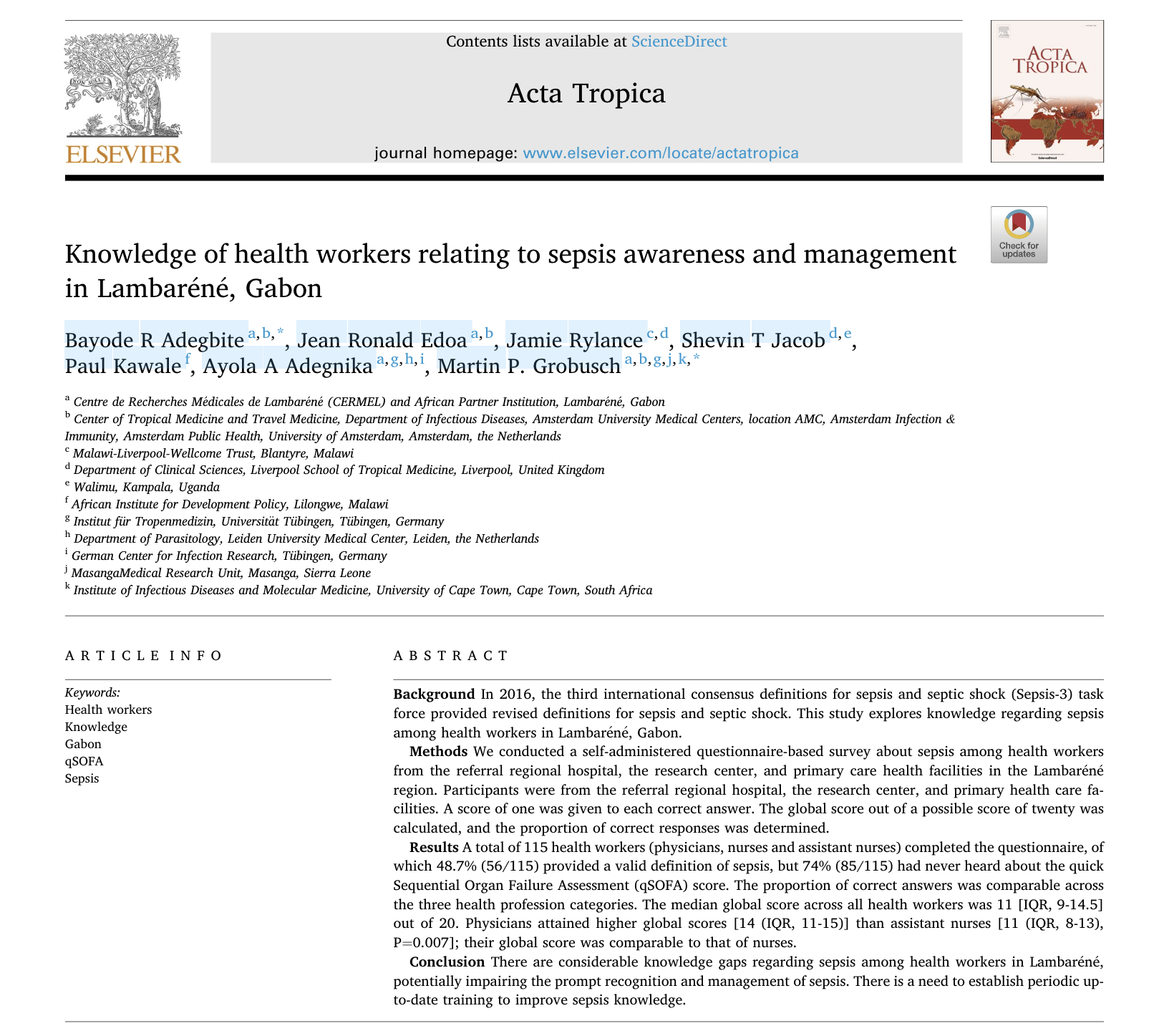
Nearly fifty million people worldwide are afflicted by sepsis every year, resulting in eleven million deaths annually and sub-Saharan Africa countries are amongst those most heavily affected. This study explores knowledge regarding sepsis among health workers in Lambaréné Gabon; and revealed that there are considerable knowledge gaps regarding sepsis among health workers in Lambaréné, potentially impairing the prompt recognition and management of sepsis. There is a need to establish periodic up- to-date training to improve sepsis knowledge. You can access the full articles here: https://doi.org/10.1016/j.actatropica.2021.105914 Authors: Bayode R Adegbite, Jean Ronald Edoa, Jamie Rylance, Shevin T Jacob, Paul Kawale, Ayola […]

In Africa, HIV positive mothers face many challenges and realities when it comes to breastfeeding. Although recent policies have sought to increase the rates of exclusive breastfeeding (EBF) and continued breastfeeding for HIV exposed infants, few programs have considered the multiple social and cultural barriers to the practice; research conducted qualitative research in Koibatek, a sub-County in Baringo County Kenya; transcribed data was analyzed thematically where evidence revealed that there are multiple facilitators and barriers of optimal breastfeeding that needs a holistic approach to interventions aimed at achieving elimination of mother to child transmission. You can access the full article […]
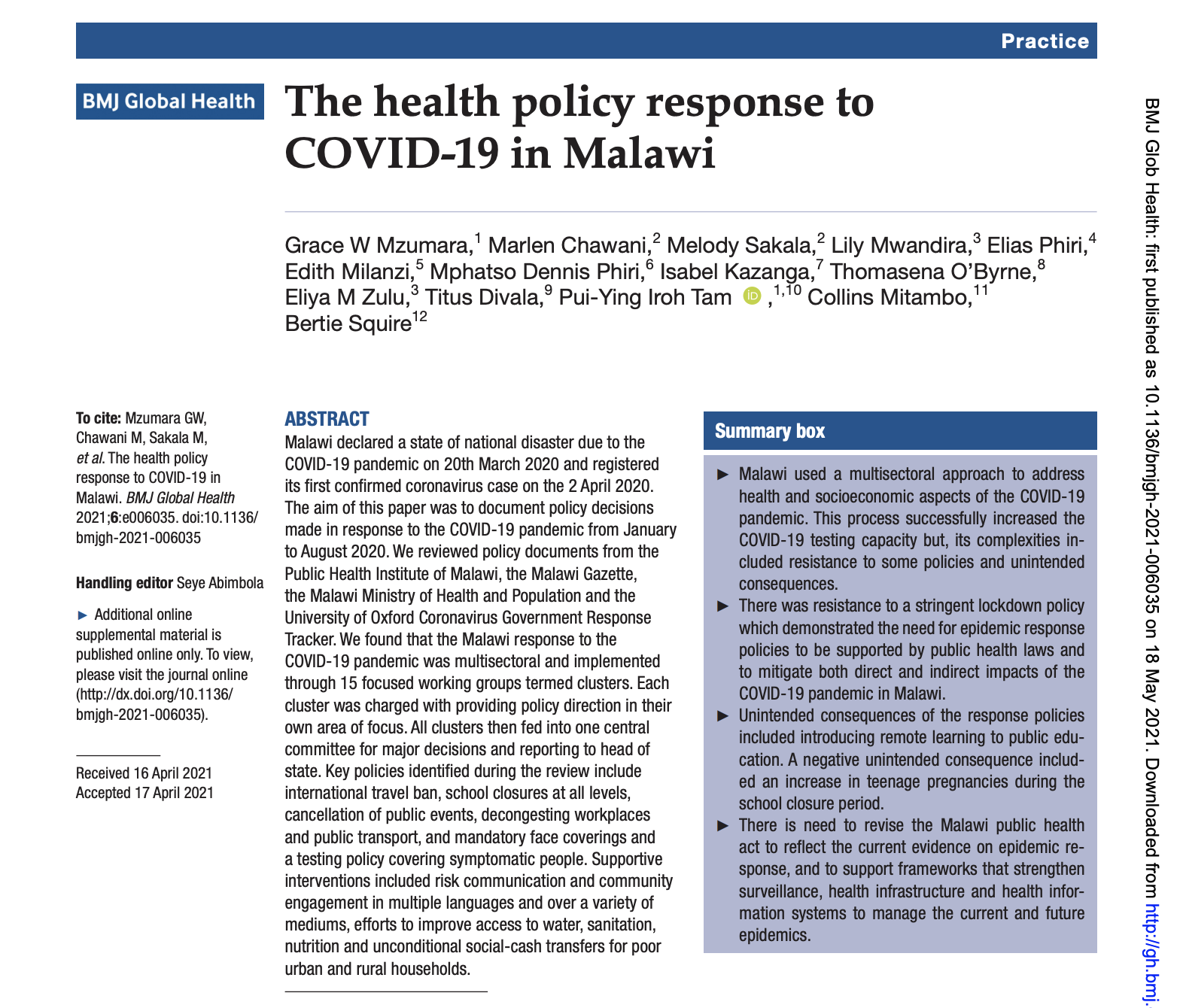
Health policies inform decisions regarding population health and determine how they will be implemented, covering issues from primary healthcare to health emergencies, Malawi declared a state of national disaster due to the COVID-19 pandemic on 20th March 2020 and registered its first confirmed coronavirus case on the 2 April 2020. The aim of this paper was to document policy decisions made in response to the COVID-19 pandemic from January to August 2020; Malawi used a multi sectoral approach to address health and socioeconomic aspects of the COVID-19 pandemic and findings show there is need to revise the Malawi public health […]
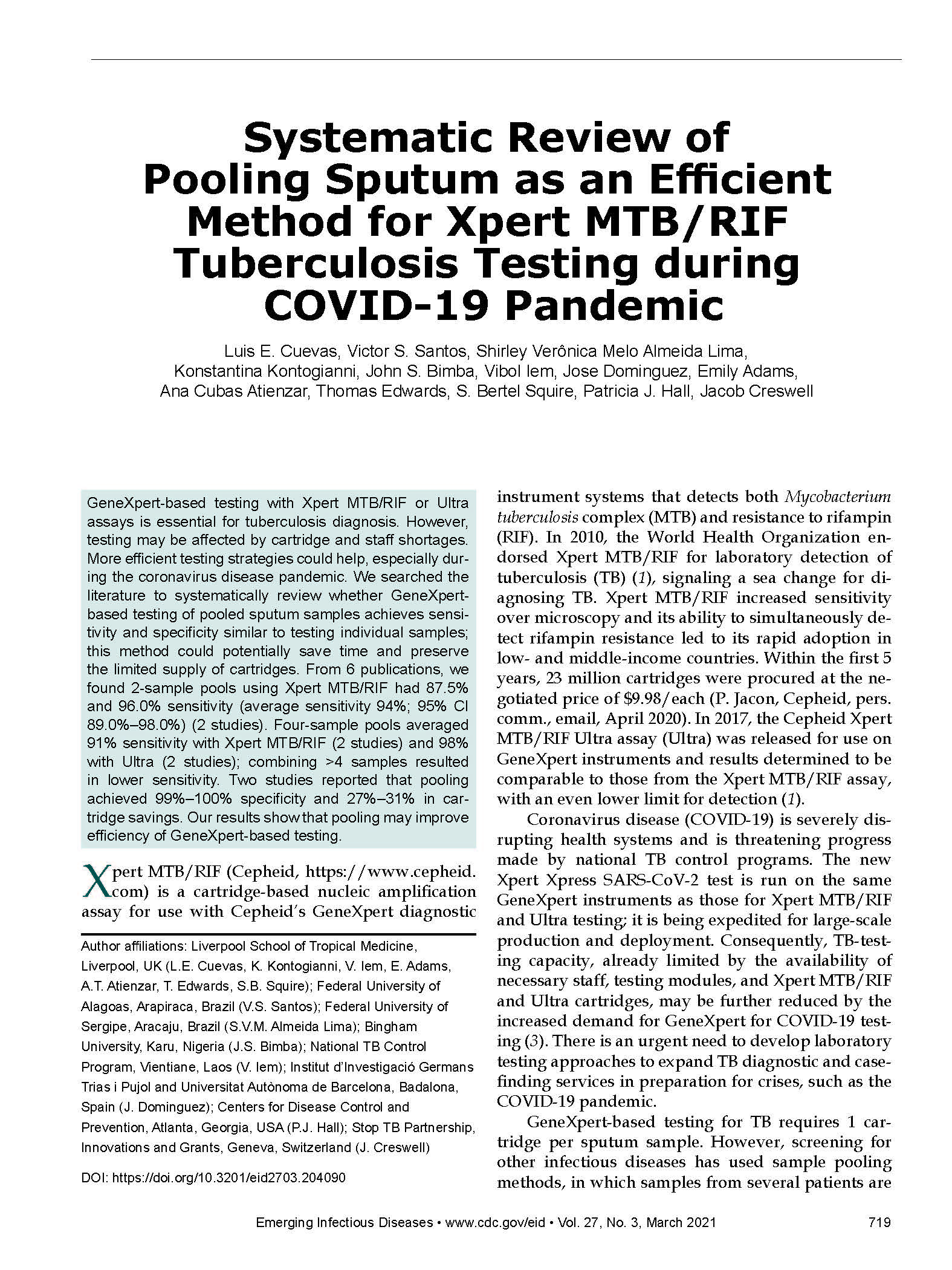
Researchers from the LIGHT (Leaving no-one behind: transforming gendered pathways to health for TB) research programme have contributed to a systematic review in Emerging Infectious Diseases(link is external) looking at pooling samples (sputum) as a potentially efficient approach in testing for tuberculosis (TB) during the COVID-19 pandemic. You can access the full article here: https://wwwnc.cdc.gov/eid/article/27/3/20-4090_article Authors: Luis E. Cuevas, Victor S. Santos, Shirley Verônica Melo Almeida Lima, Konstantina Kontogianni, John S. Bimba, Vibol Iem, Jose Dominguez, Emily Adams, Ana Cubas Atienzar, Thomas Edwards, S. Bertel Squire, Patricia J. Hall, and Jacob Creswell
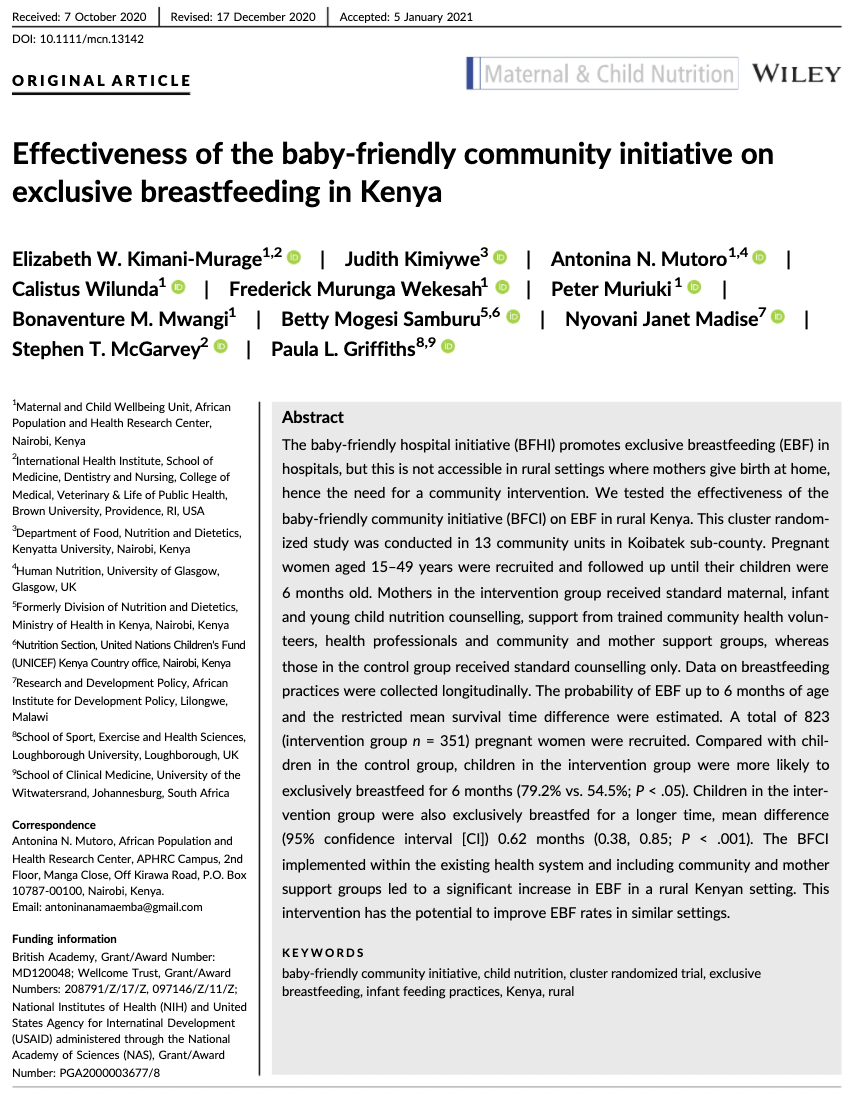
Exclusive breastfeeding (EBF) for the first 6 months of a child’s life and continued breastfeeding thereafter for up to 2 years, with timely introduction of appropriate complementary feeding at 6 months, is essential for optimal child growth and development. Numerous health, financial, social and economic benefits of EBF have been documented (Victora et al., 2016). Despite the documented benefits of EBF to children and their families, EBF rates remain low in most parts of the world. You can access the full article here: https://www.researchgate.net/publication/349005543_Effectiveness_of_the_baby-friendly_community_initiative_on_exclusive_breastfeeding_in_Kenya Authors: Elizabeth W. Kimani-Murage, Judith Kimiywe, Antonina N. Mutoro, Calistus Wilunda, Frederick Murunga Wekesah, Peter Muriuki, […]
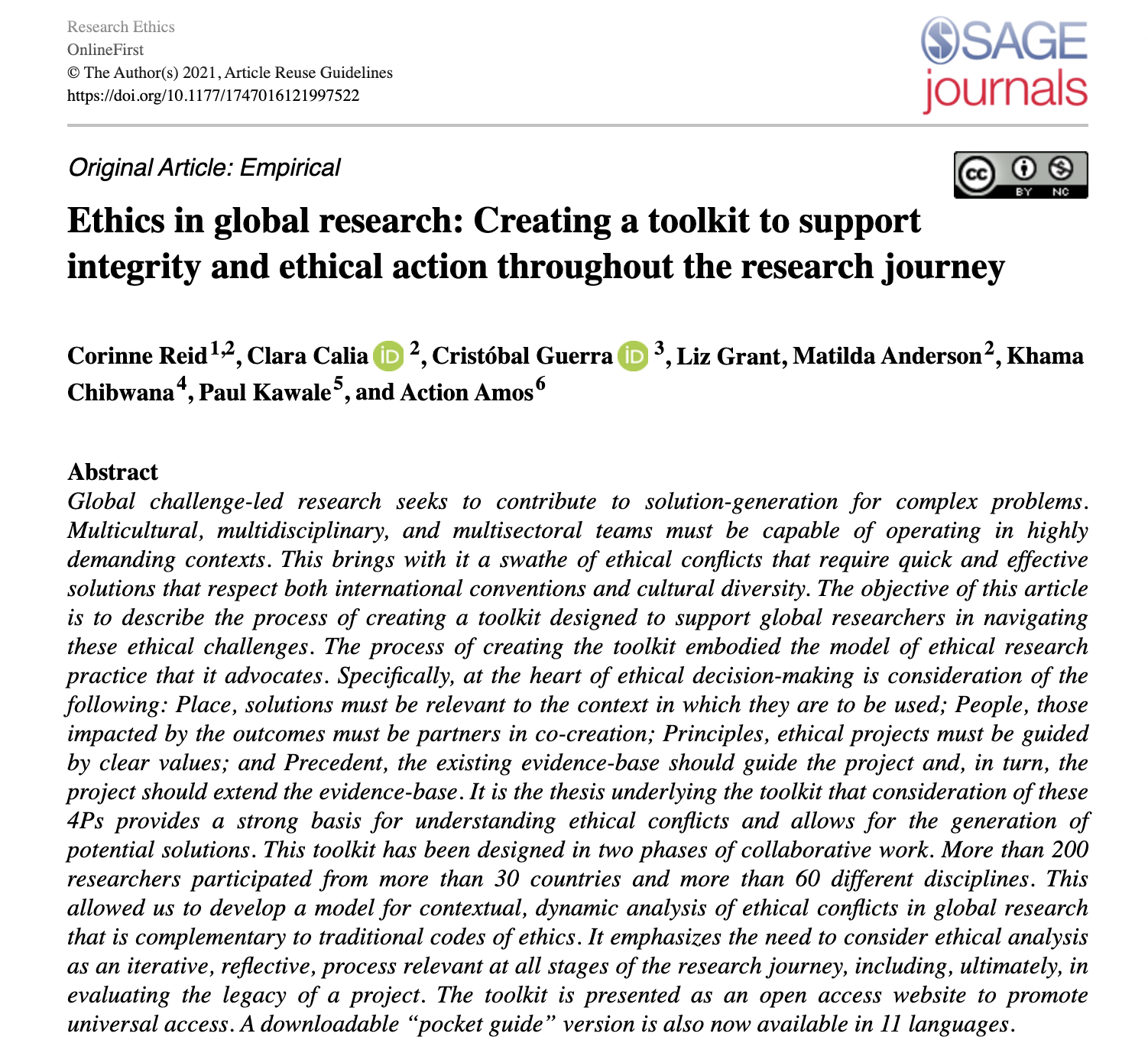
In the past 20 years, the rate of globalization has affected all aspects of society and brought the global village together in search of solutions to complex challenges affecting the health and wellbeing of people, communities, and the planet. In response to these challenges and personal experiences in complex research settings, the authors of this paper initiated a project exploring leadership in ethics, integrity, and research conduct in complex LMIC-UK partnership projects. This paper describes the process of consultations with global researchers from around the world to create an online, open-access toolkit for the global research community; findings show it was […]
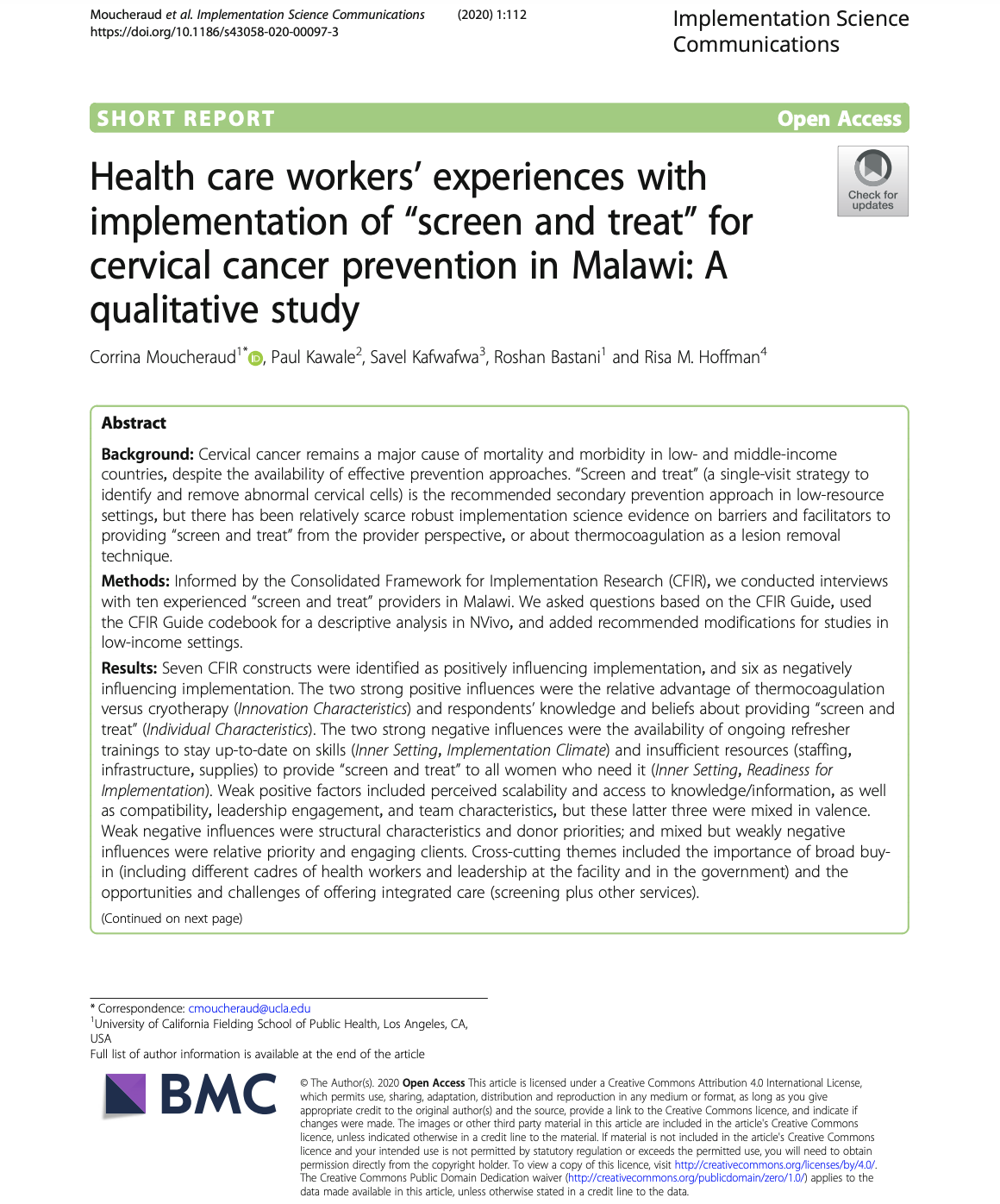
Cervical cancer remains a major cause of mortality and morbidity in low- and middle-income countries, despite the availability of effective prevention approaches. Informed by the Consolidated Framework for Implementation Research (CFIR), we conducted interviews with ten experienced “screen and treat” providers in Malawi. Although “screen and treat” is viewed as effective and important, many implementation barriers remain. Our findings suggest that implementation strategies will need to be multi-level, include a diverse set of stakeholders, and explicitly address both screening and treatment. You can access the full article HERE. Authors: Corrina Moucheraud, Paul Kawale , Savel Kafwafwa , Roshan Bastani and […]

